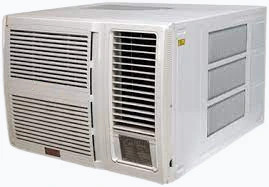Tel: 0129-4001010 Phone: +91 730 321 5033
Email: cs@absoluteveritas.com
BIS CERTIFICATION FOR UNITARY AIR CONDITIONERS IS 1391 (PART 1):2017
In the current competitive scenario, thriving in the market necessitates a certified product of standard quality. A BIS license might also be necessary for selling products in the Indian market. To obtain BIS certification and manufacture a product of standard quality, manufacturers must ensure their product adheres to the specified Indian standard.
Explore IS 1391(Part 1): 2017 for unitary air conditioners, focusing on room air conditioners.
IS 1391 (Part 1): 2017 pertains to unitary air conditioners designed for room use. This standard outlines design and performance criteria for unitary air conditioners and specifies test conditions and procedures for evaluating their various performance attributes, particularly when operating without frosting during cooling and dehumidifying at standard rating conditions. Additionally, the standard encompasses unitary air conditioners capable of operating as heaters with the use of either a heat pump or an electric heater.
Unitary air conditioners are categorized according to their operational purpose and nominal cooling capacity.
1)Function-based Classification:
-
Cooling and Dehumidification
-
Cooling and Heating via Heat Pump
-
Cooling and Heating with Electric Heater
2) The nominal cooling capacity of unitary air conditioners should be categorized as: 1500, 2250, 3000, 3750, 4500, 6000, 7500, and 9000 kcal/h.
Manufacturers are responsible for ensuring that their products comply with the standard's general, constructional, and performance specifications. The air conditioner and its components must be constructed with adequate strength and rigidity to endure routine handling, transportation, and operational conditions. They should not feature any sharp edges or corners that could pose injury risks under normal usage scenarios, and all potentially hazardous moving parts must be properly guarded. Additionally, parts requiring regular servicing should be easily accessible.
Materials utilized in constructing cabinets, front panels, etc., should adhere to equivalent Indian Standards wherever relevant, unless specified otherwise by this standard. The materials must be devoid of defects that could lead to premature deterioration or failure.
TEST
The subsequent assessments are to be conducted for unitary air conditioners.
-
Pressure test
-
High Voltage Test
-
Leakage Current Test
-
Earth Resistance test
-
Cooling Capacity test
-
Power factor test
-
Power factor test
-
Freeze up test
-
Maximum Heating Performance Test
-
Sound test
-
Power consumption test
Labeling and marking must adhere to IS 1391 (Part 1): 2017 guidelines. If the product conforms to IS 1391 (Part 1):2017 requirements, it may receive certification under the Bureau of Indian Standards Act, 2016, along with its relevant Rules and Regulations, and can be affixed with the Standard Mark (ISI Mark). Manufacturers are required to obtain a BIS license from the Bureau of Indian Standards to use the standard mark (ISI Mark), which is granted following a successful evaluation of manufacturing infrastructure, quality control, testing capabilities, and production processes.
NOTE:
For comprehensive details on the BIS ISI Certification procedure
WHY USE ABSOLUTE VERITAS (AV)?
Absolute Veritas is a prominent organisation from the private sector of India primarily dealing with the Inspection, Testing, Audits, Certification of products& consulting services to various industries in India and worldwide, ensuring compliance with regulatory standards and industry requirements. Offering a comprehensive range of services including product certification, testing, training, auditing, and compliance services, Absolute Veritas helps manufacturers and importers achieve higher production efficiency and quality standards.
Absolute Veritas (AV) will handle end to end pre-registration request, sample preparation, documentation, testing and application process for Certification
For any questions regarding the most recent update on registration licenses, please reach out to us via email at cs@absoluteveritas.com



